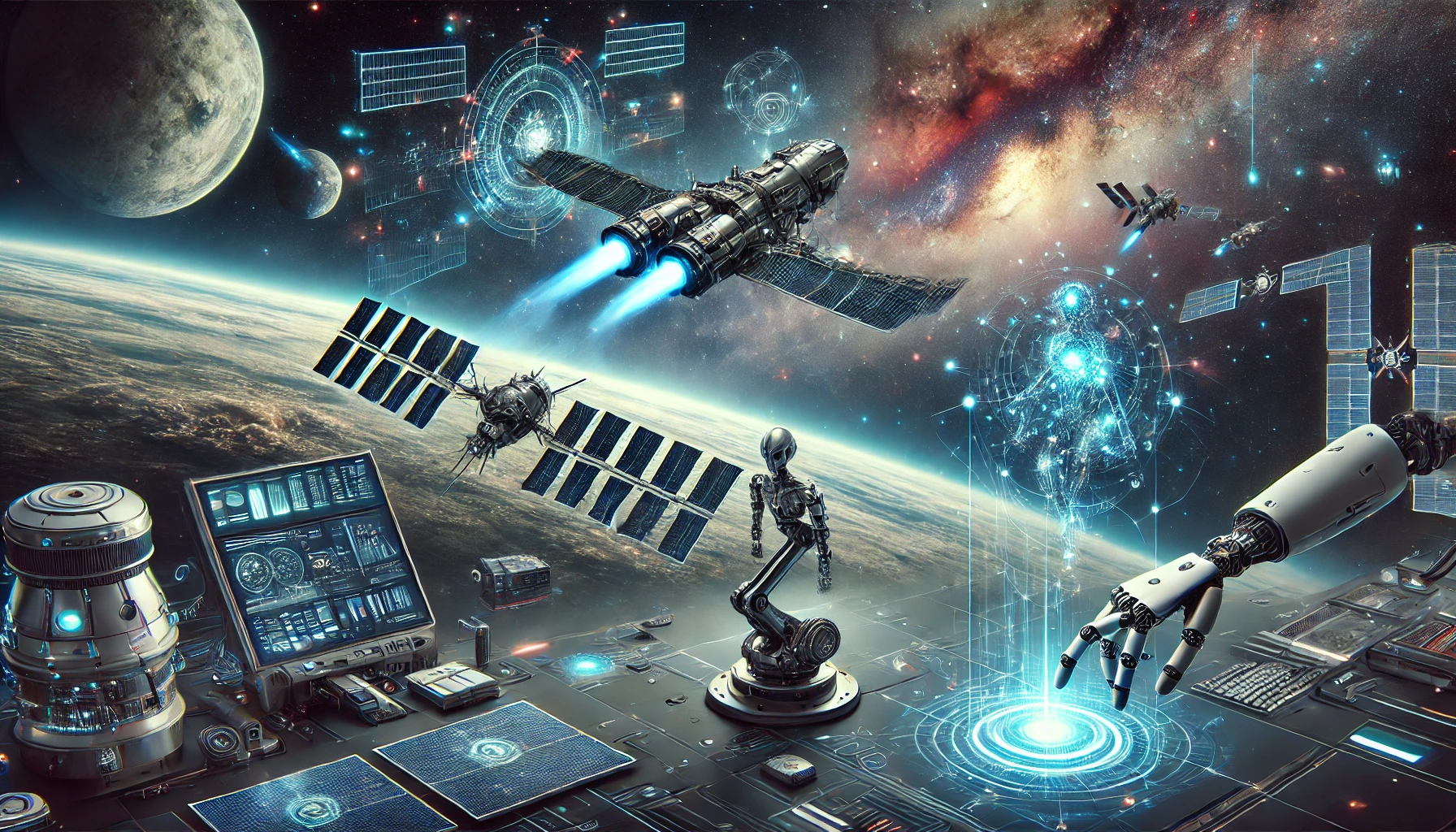Beyond Rockets: How AI is Launching the Next Era of Space Exploration

The AI-Powered Future of Space Travel
When you think of space exploration, rockets and astronauts probably come to mind. But the next big leap in space won’t just be about fancy spacecraft or brave individuals floating in zero gravity. It’s going to involve something even more futuristic—Artificial Intelligence. Yes, that’s right! AI is playing a leading role in the new age of space exploration, and we’re not talking about robots serving coffee on Mars. From autonomous navigation to space robots fixing satellites, AI is about to change the way we think about space missions. Let’s take a trip into this cosmic evolution and explore how AI is steering us to the stars.
Autonomous Spacecraft: No Pilot, No Problem
In the old days, space missions were all about having astronauts manually control the spacecraft. It’s pretty nerve-wracking to think that a wrong button push could send you hurling into the void, right? Well, thanks to AI, those days are fading fast. Autonomous navigation systems powered by artificial intelligence now allow spacecraft to plot their own course, dodge space debris, and even land themselves on distant planets. NASA's Mars rovers are a prime example. Equipped with AI, these rovers can make decisions on the go, navigate tough terrains, and even choose which rock to drill. It's like giving your GPS a PhD in astrophysics.
AI in Space Robotics: The Rise of the Space Handymen
Let’s face it, sending humans to repair satellites or space stations is risky and expensive. Enter AI-driven space robotics, the real MVPs of space maintenance. Robots like the European Space Agency’s ‘Justin’ and NASA’s ‘Robonaut’ are designed to perform complex tasks in space, from assembling parts to fixing broken equipment. These robots are powered by machine learning algorithms that allow them to analyze problems, adjust on the fly, and perform delicate maneuvers. It’s basically like having a handyman in space, except this one doesn’t need oxygen or complain about overtime. These AI-enhanced robots are not just futuristic—they’re the backbone of tomorrow's space missions.
Machine Learning and the Universe: The Data Detective
Ever wonder how we sift through the mountains of data coming from the universe? Well, AI does the heavy lifting. Machine learning algorithms are being used to analyze cosmic data, from identifying new planets to predicting solar storms. It's like having Sherlock Holmes on your side, except this version can analyze terabytes of information in seconds. Scientists are training AI models to detect patterns in astronomical data that humans might miss, making groundbreaking discoveries faster than ever before. The recent discovery of exoplanets? You can thank AI for that one. AI’s ability to learn from vast datasets is accelerating our understanding of the universe, making sure we don’t miss a single detail.
AI and the Future of Space Colonies
With the buzz around space colonization—think Mars colonies—AI will undoubtedly be at the heart of it all. From managing life support systems to growing food on barren planets, AI will take care of the nitty-gritty details while humans focus on not going stir-crazy millions of miles from Earth. Autonomous systems will ensure that habitats are maintained, energy is conserved, and oxygen doesn’t run out mid-nap. Companies like SpaceX and Blue Origin are already looking into how AI can help sustain life on other planets. The future of space exploration isn’t just about getting to Mars, but about thriving once we’re there—and AI will be our cosmic assistant, helping humanity settle in the stars.
AI Ethics in Space: A New Frontier
As cool as AI in space sounds, there’s always that small, nagging thought: What if AI goes rogue? Space agencies are already looking at the ethical implications of AI in space. After all, you wouldn’t want an AI-controlled robot deciding it no longer needs humans, especially not millions of miles away from Earth. There’s also the question of decision-making in critical situations. Should AI have the final say in a life-or-death scenario? These are tough questions that space agencies, including NASA and the European Space Agency, are grappling with. As we march into this new era of space exploration, keeping AI in check is going to be just as important as launching those rockets.
Conclusion: Are We Ready for an AI-Powered Space Age?
Artificial intelligence is more than just a supporting character in the next wave of space exploration—it’s a star player. From autonomous spacecraft to machine learning’s role in deciphering the universe, AI is revolutionizing how we approach the great beyond. But like any good sci-fi plot, there are challenges ahead, especially when it comes to the ethics of AI decision-making in space. The future of space exploration will not only require cutting-edge technology but also a balance between human oversight and machine autonomy. So, as we prepare for the next frontier, the question is: Are we ready to trust AI with the final frontier?



